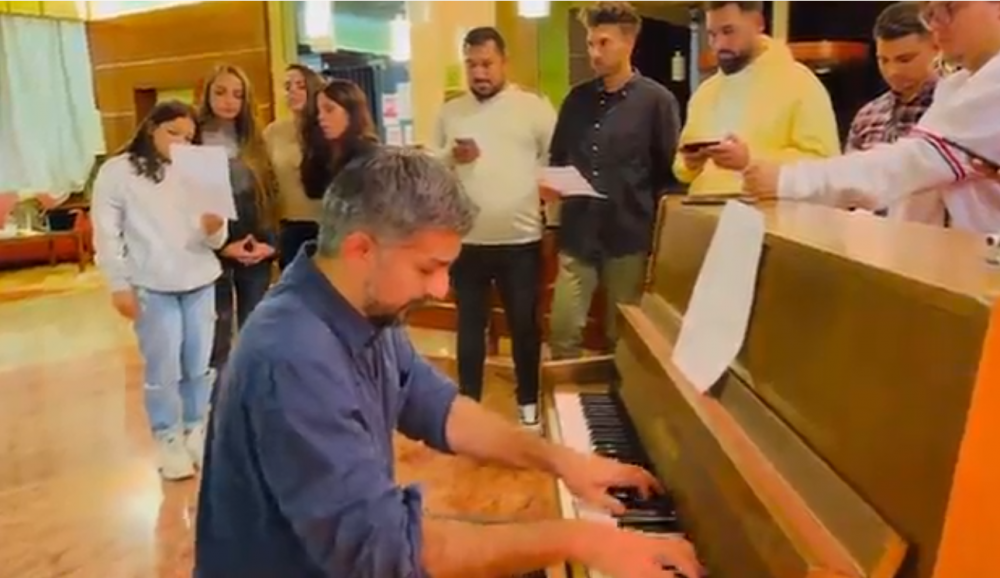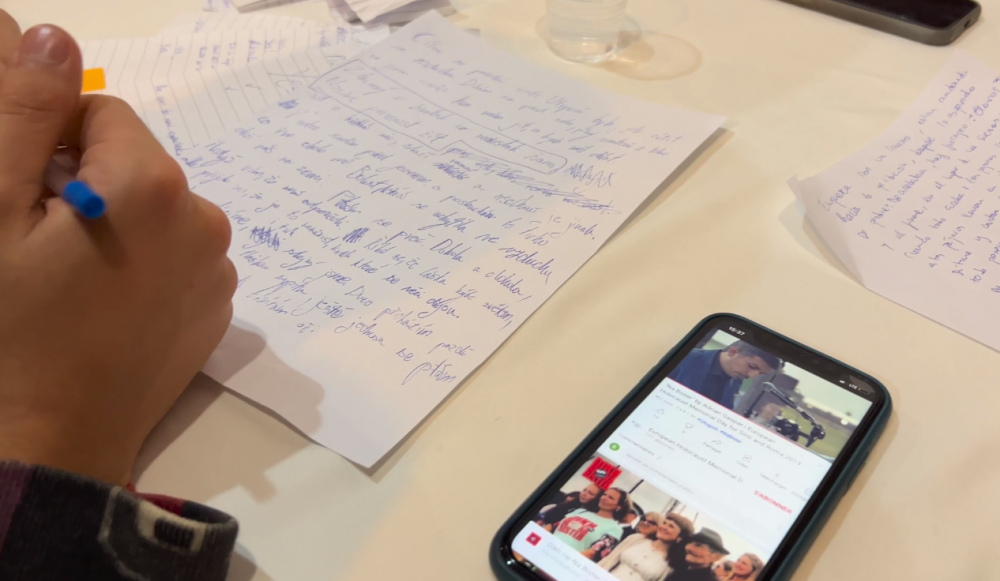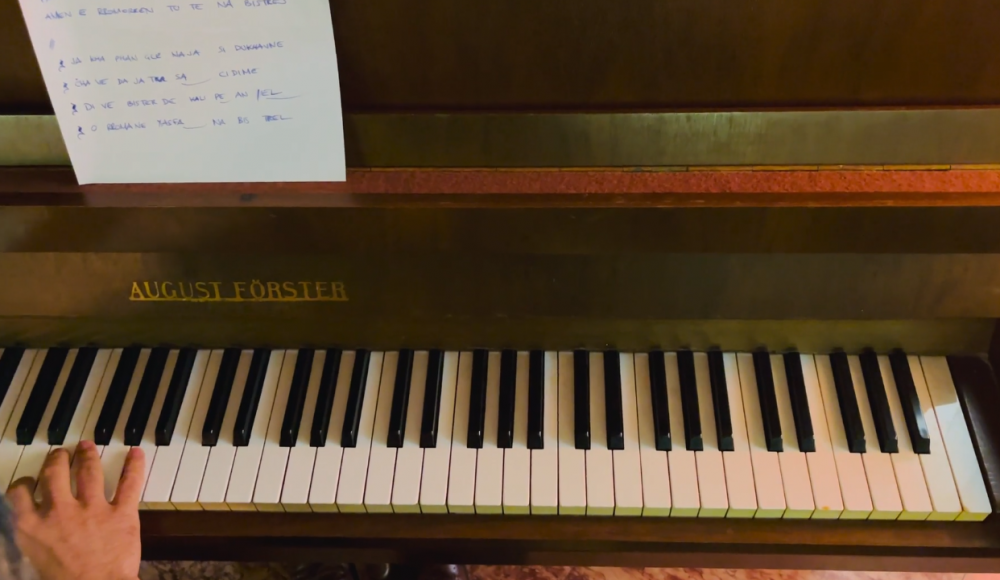The RomArchive, hosted by the Documentation and Cultural Center of German Sinti and Roma, is a valuable source of the stories and narratives provided by the victims themselves and it contributes much of lesser known historical texts to improve places and narratives of remembrance.
The RomArchive (www.romarchive.eu) creates an internationally accessible, reliable online source of knowledge, which counters stereotypes and prejudices with facts. For the first time, the story of the genocide committed against the Romani minority was told exclusively from the perspective of the victims. Therefore, the sources can establish counter-narratives for Roma youth organisations to use in their educational work.

As part of the project “Dikh He Na Bister – Strengthening voices of young Roma in Holocaust remembrance” we decided to use these valuable sources in the songbook that in the future would be used in the Holocaust education. In close cooperation with the Romani artist Adrian Gaspar, a Romanian-Austrian pianist, composer and arranger, we decided to use the RomArchive prepared a songbook. The list of songs, introduction and examples of educational sessions and use have been agreed upon and are at the moment in development. Two songs have been already created and performed live during our meeting in Zagreb/Jasenovac in October 2021.
Educational materials based on the RomArchive will be developed to be published online and in print.

While learning about the Holocaust, listening is the essential skill which can be learnt and needs to be taught. By listening we mean the process of receiving an information, ability to assign a meaning to that information and incorporate it in the wider corpus of knowledge.

Listening to the music is a crucial component of the listening as a communication skill. It helps students to focus, follow the rhythm of the narrative and allows him/her to immerse into the told story. Music is a ideal tool to engage young people and help them to get a deeper understanding of a told narrative. Songs are essentially poems, and have a lot of meaning packed into few words. They can be questioned and discussed. Young people’s own experiences are taken into consideration and add their personal perspective.

The project is funded by the EVZ Foundation and the Federal Foreign Office as part of the program YOUNG PEOPLE remember.



